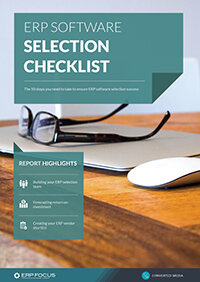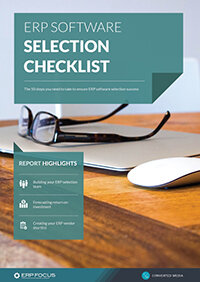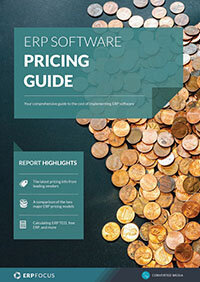The importance of company culture when selecting ERP
The phrase “company culture” is typically seen as an arcane concept, driven by philosophy or goal-setting. However, at an operational level, “why” businesses make decisions in a particular way is equally as important as any other management consideration. This is because companies tend to respond to their leadership and, therefore represent subjective desires driven by the views of founders, owners or senior managers.
The question to ask yourself is “which culturally relevant points should and should not be considered when selecting ERP?”
Company culture often becomes a first principal and guides many decisions when selecting an ERP system. The question to ask yourself is “which culturally relevant points should and should not be considered when selecting ERP?” And more importantly, “when is leaning on a business's’ internal culture a good or bad thing?”.
Small company cultures often follow “less is more”
A small company’s culture impacts internal scale perceptions that directly affects all decision making during ERP selection. This is due to the fact that small companies tend to “think thin” as they often have to in order to survive. In turn, this subjective intellectual constraint tends to frame everything associated with a selection project, ranging from budget decisions, to workforce training.
For example, it is unlikely that most small firms would seriously consider a full-bodied tier 1 ERP implementation. Even if the company could fathom the budget necessary to handle the option, the volume of internal resources necessary to move this level of system forward would be, at best, a glacial proposition; if not entirely impossible to execute in a reasonable time-frame.
Recommended reading: 50-step ERP software selection checklist
This is not a knock on small businesses, but simply a simple issue of time/motion, since small companies typically harbor small workforces driven to focus on production revenue first, rather than accepting non-revenue focused activities as a central operational priority. With this in mind, lean, cloud-based systems tend to play out more efficiently in smaller companies.
Enterprise-level cultures often follow “more is less”
There’s a bit of an intellectual inversion involved when it comes to small versus big business cultures. Where lean, small companies typically employ the smartest and innovative people; these resources are often greatly limited and, as suggested earlier, are generally unable to take advantage of more sophisticated ERP platforms.
In the case of enterprise-level companies resources are not typically a problem, instead, challenges associated with crisp decision-making come to the fore. This is due to the simple fact that expanding companies tend to become more bureaucratic over time, especially when selecting ERP software.
In the case of enterprise-level companies resources are not typically a problem, instead, challenges associated with crisp decision-making come to the fore.
For example, although companies of this size usually harbor the necessary resources and financial depth to handle a Tier 1 ERP project, things can get sticky when executing a selection plan with an extensive team; as the old saying suggests; “too many cooks spoil the broth.” However, as a practical matter, thorough ERP selections must involve every internal stakeholder to ensure that everyone is on board and pulling in the same direction.
The larger the enterprise, the longer the selection process can become, as large selection teams often don’t see eye to eye. Many large business cultures navigate this limitation as senior managers simply avoid the problem by shortcutting their own internal characteristics, before there is a chance that everyone gets so sick of the whole thing that the ERP selection project grinds to a halt.
Every business culture is different, and just considering the small versus big conundrum won’t get the job done by half. When selecting ERP, one has to first accept that company culture is critical to any operational success, then dig until you uncover all of the core issues that are liable to either encourage efficiency, or drive one crazy in the inverse.
Free white paper

60-Step ERP Selection Checklist
Get the comprehensive checklist for your ERP selection project

Featured white papers
-

ERP Software Pricing Guide
Get the latest pricing information on over 80 popular ERP systems, and learn how to budget for your ERP project in our free guide
Download -

60-Step ERP Selection Checklist
Get the comprehensive checklist for your ERP selection project
Download -

Top 10 Small Business ERP Comparison
Get your free comparison of the top 10 small business ERPs
Download
Related articles
-

The best ERP systems for process manufacturing
Consider these ERP systems when selecting your next process manufacturing ERP
-

How the right ERP can help you launch a successful omnichannel business
Petersen Zhu, CEO of DigitBridge and Vibes Base, shares how to create a scalable omnichannel stra...
-

5 ERP pricing definitions you need to understand
Have you mastered the ERP pricing lexicon yet? Getting to grips with these five definitions is a ...

